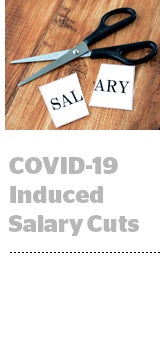This story has been updated to reflect Tuesday’s earnings call.
Publicis Groupe said Monday it will cut the salaries of chairman and CEO Arthur Sadoun and executive chairman of the supervisory board Maurice Lévy by 30% in response to the coronavirus pandemic.
The company will also reduce compensation by 20% for management board members. For stakeholders, Publicis will slash dividends by 50%, from 2.50 euros to 1.15 euros, and delay payments until the end of September.
Publicis has frozen all hiring and promotions and encouraged employees to take vacation time during the lockdown period. It will reevaluate third-party contracts to see what it can bring in-house. And it has implemented shorter work weeks in certain regions to reduce costs.
These steps are part of a 500 million euro (roughly $550 million) cost reduction plan put in place as the business world grapples with the economic fallout of COVID-19.
“We are taking exceptional measures to face the coming recession and preserve a solid balance sheet,” Sadoun said. “There is no doubt that we are going through an unprecedented health crisis that will lead us to the greatest recession in living memory.”
Publicis laid out the cost reduction plan along with its Q1 earnings. The group’s organic growth declined by 2.9% to $2.7 billion, in line with expectations set before the pandemic. Organic growth in the United States was 5% to roughly $1.7 billion, while Epsilon grew at 5% at the end of February.
But the company was dragged down by double-digit declines in China, where COVID-19 first emerged. Growth in APAC dipped 1.9% to $219 million. Publicis also suffered in Europe due to the outbreak, with organic growth down in the region 9.2% to 578 million euros.
The company withdrew its 2020 guidance figures of between -2% and 1% growth due to uncertainty.
“The month of March was seriously affected by the continuous decline in China and the abrupt deterioration in Europe, due to COVID-19 confinement measures,” Sadoun said.
Publicis joins Dentsu Aegis Network and WPP in slashing salaries in response to the coronavirus pandemic, as clients pause ad spend and conserve cash at least through Q2 2020.
Publicis will adjust cost-cutting decisions on a country-by-country P&L basis. Sadoun added the company had 4.7 billion euros (roughly $5 billion) of cash liquidity at the end of March, but will be in a position to further reduce costs “if the situation worsens.”
“These country-led decisions take into account every possible solution: central staffing, short-term work weeks, furloughs and salary reductions,” he added. “Every plan we are designing during the crisis will vary according to each country context.”
Client mood
Publicis’ ability to weather the storm will depend on how its clients fare – which varies by vertical.
Travel, hospitality, automotive and bricks-and-mortar retail “will be particularly affected,” Sadoun said. Grocery has maintained but adjusted spend, and verticals like online gaming, food delivery, health and some ecommerce brands have actually increased spend during the crisis.
Publicis positioned Epsilon’s first-party data as a means to help clients measure ROI. “Our clients won’t recover overnight and efficiency is going to be extremely important,” Sadoun said.
Before the virus hit, Publicis was showing signs of recovery in North America.
Publicis.Sapient was finally heading back to flat growth in the region, but it’s unclear what kind of appetite clients now have for long-term investments like business transformation.
Publicis has also been able to land new business during the crisis – some over video chat – including Bank of America’s creative business, Enel, US Cellular and FCA’s media and creative business in China.
Signs in China of a V-shaped recovery for retail and luxury are encouraging, but it’s still too early to look east for answers on how the crisis might play out in Europe and the United States.
“It’s not a traditional economic crisis,” Sadoun said. “It’s first a health crisis, and it’s evolution will depend on the evolution of the crisis. We see a direct correlation between confinement and revenue drops.”












